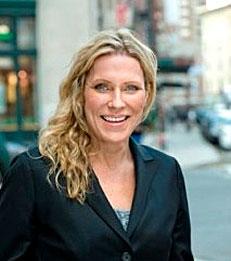Opinion
The Top 4 Reasons Most Acquisitions Fail
—


If the source of value sounds fluffy, walk away quickly.
By Melissa Schilling
Dozens of studies have shown that most mergers and acquisitions fail to create value, and many of them destroy value. In fact, finance guru Aswath Damodaran has noted, "More value is destroyed by acquisitions than any other single action taken by companies." Why do so many mergers and acquisitions fail to create value? And how could so many smart people strike so many disappointing deals? Here are the four most common reasons:
1. It's far easier to overpay for a target than to get a bargain.
Whether you're negotiating with the owner of a privately-held firm (who knows far more about the firm's resources and prospects than you do), or you're trying to buy a majority share of the stock of a publicly-held firm (and bidding the price up well over the pre-acquisition price in the process), the odds are stacked against you. You are almost always going to pay more - often significantly more - than the firm is currently worth. If you didn't, the target's current owners wouldn't sell. Their outside option is always to hold or sell to another bidder at a higher price. That means your acquisition is only going to pay off if you know something the market doesn't know, or you can do something significantly better with that firm's assets than its current owners are doing. This leads to the second reason...
2. Hubris.
A significant body of research suggests that the managers of acquiring firms often overestimate their ability to manage or assess the prospects of the target firm. Overestimation is especially likely when the sources of value sought in an acquisition are nebulous allusions to potential future synergies (e.g., "With our unrivaled content and their access to distribution, we can develop exciting new products for the digital economy"). If the source of value sounds fluffy, walk away quickly.
Read full article as published by Inc.
___
Melissa Schilling is a Professor of Management and Organizations.
1. It's far easier to overpay for a target than to get a bargain.
Whether you're negotiating with the owner of a privately-held firm (who knows far more about the firm's resources and prospects than you do), or you're trying to buy a majority share of the stock of a publicly-held firm (and bidding the price up well over the pre-acquisition price in the process), the odds are stacked against you. You are almost always going to pay more - often significantly more - than the firm is currently worth. If you didn't, the target's current owners wouldn't sell. Their outside option is always to hold or sell to another bidder at a higher price. That means your acquisition is only going to pay off if you know something the market doesn't know, or you can do something significantly better with that firm's assets than its current owners are doing. This leads to the second reason...
2. Hubris.
A significant body of research suggests that the managers of acquiring firms often overestimate their ability to manage or assess the prospects of the target firm. Overestimation is especially likely when the sources of value sought in an acquisition are nebulous allusions to potential future synergies (e.g., "With our unrivaled content and their access to distribution, we can develop exciting new products for the digital economy"). If the source of value sounds fluffy, walk away quickly.
Read full article as published by Inc.
___
Melissa Schilling is a Professor of Management and Organizations.
